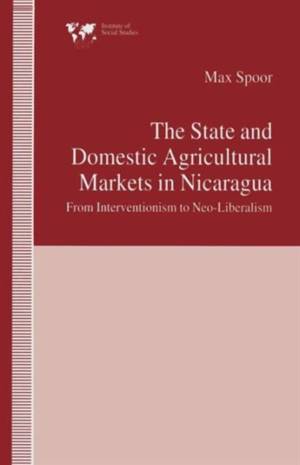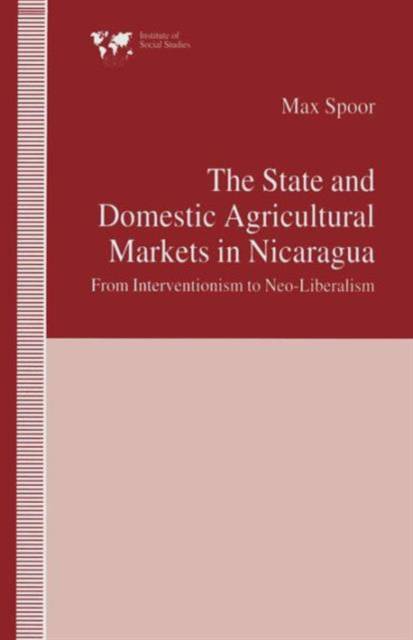
- Afhalen na 1 uur in een winkel met voorraad
- Gratis thuislevering in België vanaf € 30
- Ruim aanbod met 7 miljoen producten
- Afhalen na 1 uur in een winkel met voorraad
- Gratis thuislevering in België vanaf € 30
- Ruim aanbod met 7 miljoen producten
Zoeken
The State and Domestic Agricultural Markets in Nicaragua
From Interventionism to Neo-Liberalism
Max Spoor
€ 83,95
+ 167 punten
Omschrijving
The book examines in depth the problematic effects of state intervention in agricultural markets of developing countries against the background of the current transition of interventionism to neo-liberalism. The fascinating case of Nicaragua is explored, focusing on the 1979-1990 interventionist period under Sandinista rule, followed by an analysis of the post-1990 laissez-faire UNO-period. The limits of state intervention are shown by analysing in detail the unintended effects of certain policies such as those on land reform, price, credit and technology. Finally, the book draws comparisons between the Nicaraguan case (in which two transitions took place in a relatively short time-span) and the recent dramatic transformations of Eastern Europe. It provides arguments for a different role for the state in this process, which is directed to market development, rather than the current withdrawal.
Specificaties
Betrokkenen
- Auteur(s):
- Uitgeverij:
Inhoud
- Aantal bladzijden:
- 298
- Taal:
- Engels
- Reeks:
Eigenschappen
- Productcode (EAN):
- 9781349238668
- Verschijningsdatum:
- 1/03/1995
- Uitvoering:
- Paperback
- Formaat:
- Trade paperback (VS)
- Afmetingen:
- 140 mm x 216 mm
- Gewicht:
- 426 g

Alleen bij Standaard Boekhandel
+ 167 punten op je klantenkaart van Standaard Boekhandel
Beoordelingen
We publiceren alleen reviews die voldoen aan de voorwaarden voor reviews. Bekijk onze voorwaarden voor reviews.











